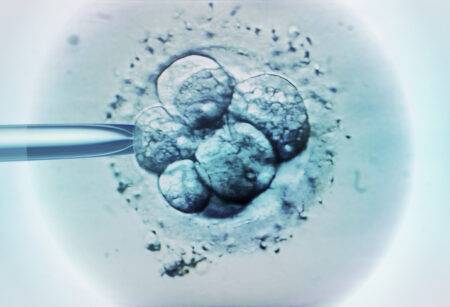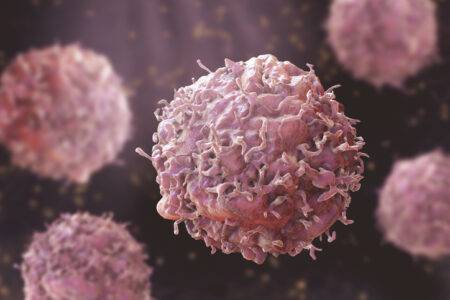But even this record could be short-lived.
Browsing: Scientists
The infection has learnt to ‘hide’.
The embryo triggered a pregnancy test.
It’s a classic personality type.
Different cancer types behave in different ways (Picture: Getty/Science Photo Libra)
Scientists have identified how a specific substance plays a key role in helping prostate cancer to spread and become harder to treat.
They hope the findings might offer new treatment options for aggressive prostate cancer.
A team at Nottingham Trent University found that ‘transglutaminase 2’ (TG2), which is abundant in many of the body’s cells, is responsible for driving a process which leads to the progression and spreading of the disease.
In the UK, prostate cancer is the most common cancer in men – with more than 52,000 diagnosed every year.
Early prostate cancer cells require the male hormone androgen to grow.
However they can become androgen-independent and therefore harder to treat with current therapies, as they advance.
Researchers suggest that until now it has not been clear how that process occurs.
‘This finding has opened a significant pathway for understanding other key mechanisms prostate cancer cells utilise to evade key regulatory pathways,’ Dr Adeola Atobatele, a scientist on the study.
The new study found that a mutant form of TG2 is overproduced in prostate cancer and remains trapped inside the nucleus of cells.
There it restricts the levels of androgen response – making cancer cells the more aggressive androgen-independent.
It also increases expression of the protein mucin-1, which is known to be responsible for the growth and spreading of cancer.
Mucin-1 forms a mucous barrier on cell surfaces which protects cancer cells, researchers found.
When researchers analysed biopsies of prostate cancer, they identified increased levels of TG2.
Based on the findings, the team proposes that controlling the activity of TG2 and mucin-1 may offer a new therapeutic option for aggressive prostate cancer.
Lead scientist Dr Elisabetta Verderio Edwards, from Nottingham Trent University’s School of Science and Technology, said: ‘We wanted to explore why some cancer cells become androgen-independent and as a result more aggressive and harder to treat.
‘Transglutaminase is a multifunctional protein in all tissues and is involved in multiple processes.
‘We have now deepened our understanding of its key role in aggressive disease in prostate cancer patients.
‘Understanding this pathway is incredibly important.
‘This process plays a key role in cancer’s ability to evade treatment and so warrants further investigation in terms of potential future treatment and therapy.’
The latest study, which also involved the Polyclinic Hospital University (University of Messina) in Italy, is published in the journal Cell Death and Disease.
MORE : Dog saves woman’s life by ‘sniffing out’ first warning sign of cancer
MORE : Bowel cancer plays deadly game of hide and seek, world-first study shows
It’s thanks to something in present-day birds,







